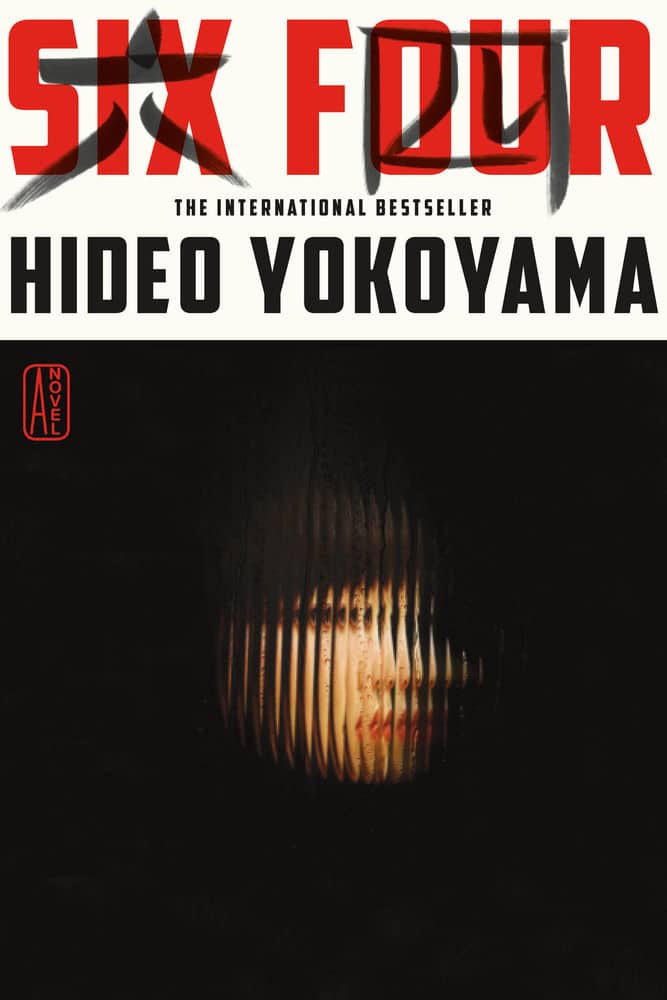Six Four
By Hideo Yokoyama. Translated from Japanese by Jonathan Lloyd-Davies.
Farrar Straus Giroux. 576 pp. $28
—
Hideo Yokoyama’s complex, ingenious and engrossing new novel, “Six Four,” has no serial killers, no femmes fatales, no locked-room murders, no torture, no sexually repressed villains, not even much in the way of forensic evidence. Instead we have one-sided telephone calls (one party does nothing but listen), bureaucratic infighting, snarled relations between the police department of a Japanese prefecture and the local media, and a strikingly original plot.
There is one crime-fiction staple, however: a cold case – so cold that it’s freezing to death. The statute of limitations for murder, we are told, is 15 years, and the 14th anniversary of a kidnap-murder in Prefecture D in the Japanese countryside has come and gone without a solution. At the center of the action in all its forms is Yoshinobu Mikami, a cop with more troubles than anyone should have to contend with.
A detective by trade, Mikami serves as the prefectural force’s director of media relations. His main duty – feeding ravenous reporters as much information as possible while divulging nothing that could compromise an investigation or violate the privacy of innocent parties – repeatedly embroils him in conflicts. The resulting tension gets to Mikami all the more because he regards media-wrangling as a demotion. If he fails to pacify those belligerent reporters, they will gripe to his superiors, possibly jeopardizing his return to detective work. And because crime-solving and public relations fall under separate divisions, he must avoid appearing to have split loyalties. Mikami’s balancing act is further complicated when he discovers that some of his colleagues not only botched a trap they set for the perpetrator of the soon-to-be-15-year-old crime, but are still covering up their incompetence.
At home, meanwhile, Mikami and his wife must cope with a gnawing personal sorrow: Their teenage daughter, Ayumi, an only child, has run away. The disappearance did not come as a complete surprise, however. The unhappy Ayumi hates her own appearance, especially her resemblance to her dad, who in his own words looks like “an exposed rock face.” More than one ex-colleague warns Mikami that unless he is careful, Criminal Investigations will fail to give this particular missing-person case the attention it deserves. No wonder that the beleaguered Mikami talks only half-jokingly about trying for a new personal record of “thirty-nine hours without sleep.”
“Six Four” (the title refers to a particular year in the Japanese calendar) is well seasoned with Japanese ways. There is a great deal of bowing, which is all but canceled out by a great deal of shoving (although not much hitting or shooting). An official who cannot spill a secret without violating his oath of office may resort to the hairsplitting tactic of turning his back on his interlocutor and talking to himself. When the mother of a murder victim dies some years after the fact, it is “all but compulsory” for a detective still working on the case to attend the funeral. And Yokoyama steps back to frame what he calls the con man’s dilemma: You can hardly confess to the police, of course, yet who would better appreciate the brilliant crime you’re dying to brag about?
Unfortunately, I can’t say much about the cleverness of Yokoyama’s denouement without becoming eligible for the circle of hell reserved for spoilers. Instead I’ll imitate a practice beloved of several characters in the novel: making an enigmatic statement that won’t be understood until it’s too late. Never has a novelist made so much of the silences “heard” over the telephone.
Jonathan Lloyd-Davies has translated “Six Four” with unobtrusive brio, and the publisher has obligingly provided a Cast of Characters to help us keep straight a small multitude of cops, wives, reporters and victims. As for the author, he possesses that elusive trait of a first-rate novelist: the ability to grab readers’ interest and never let go. Perhaps one chapter too many ends with Mikami making a flabbergasting discovery that throws a whole new light on the case, but those revelations really are flabbergasting.
Let me make two predictions about your response to “Six Four.” You will find yourself caring more than you thought possible about the rivalry between Criminal Investigations and Administrative Affairs. And if not a bow, you will at least want to give Hideo Yokoyama a tip of your hat for writing such a highly entertaining book.
—
Drabelle wrote the Japan chapter for “Crimes of the Scene: A Mystery Guide for the International Traveler,” edited by Nina King.






